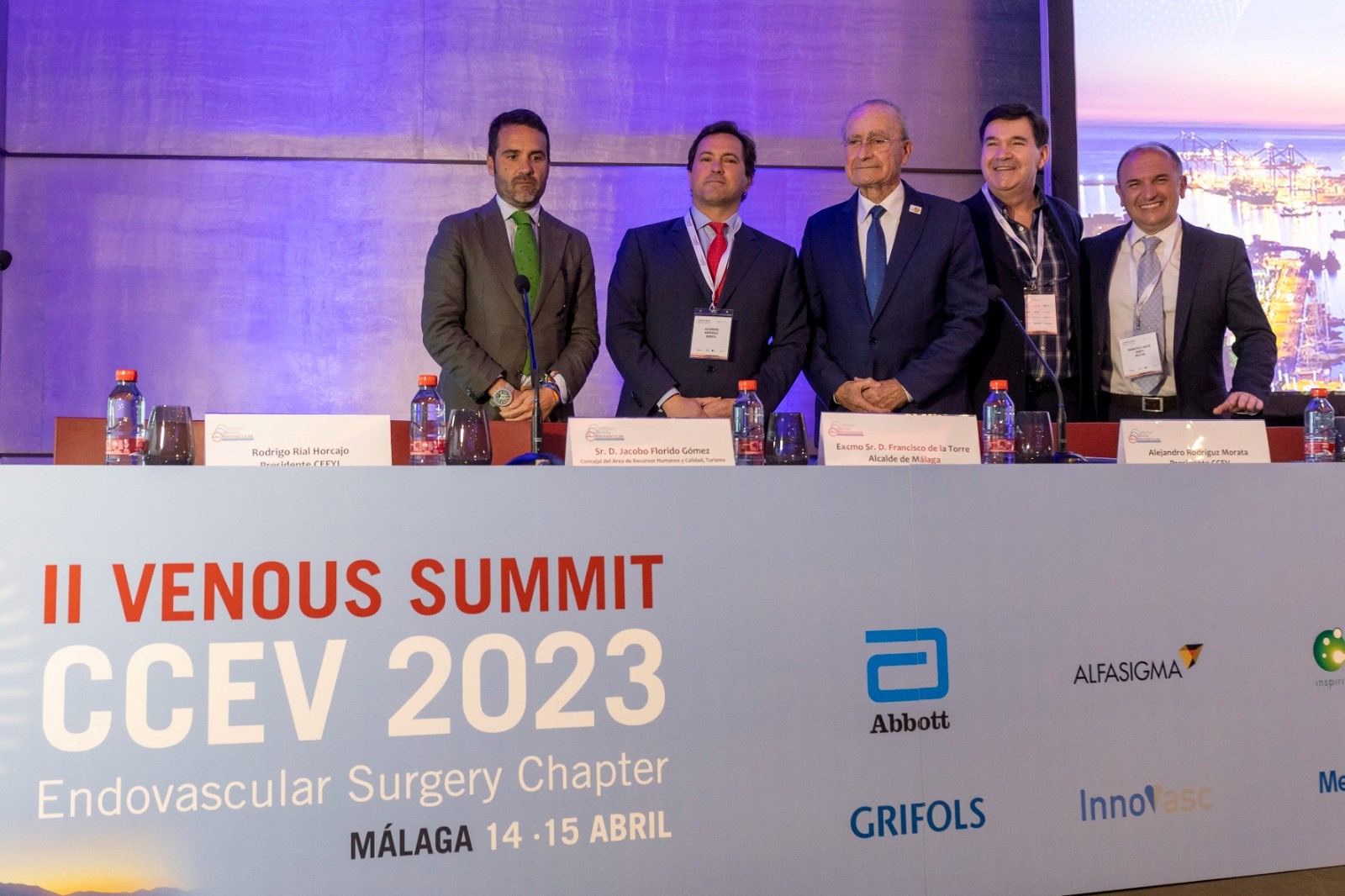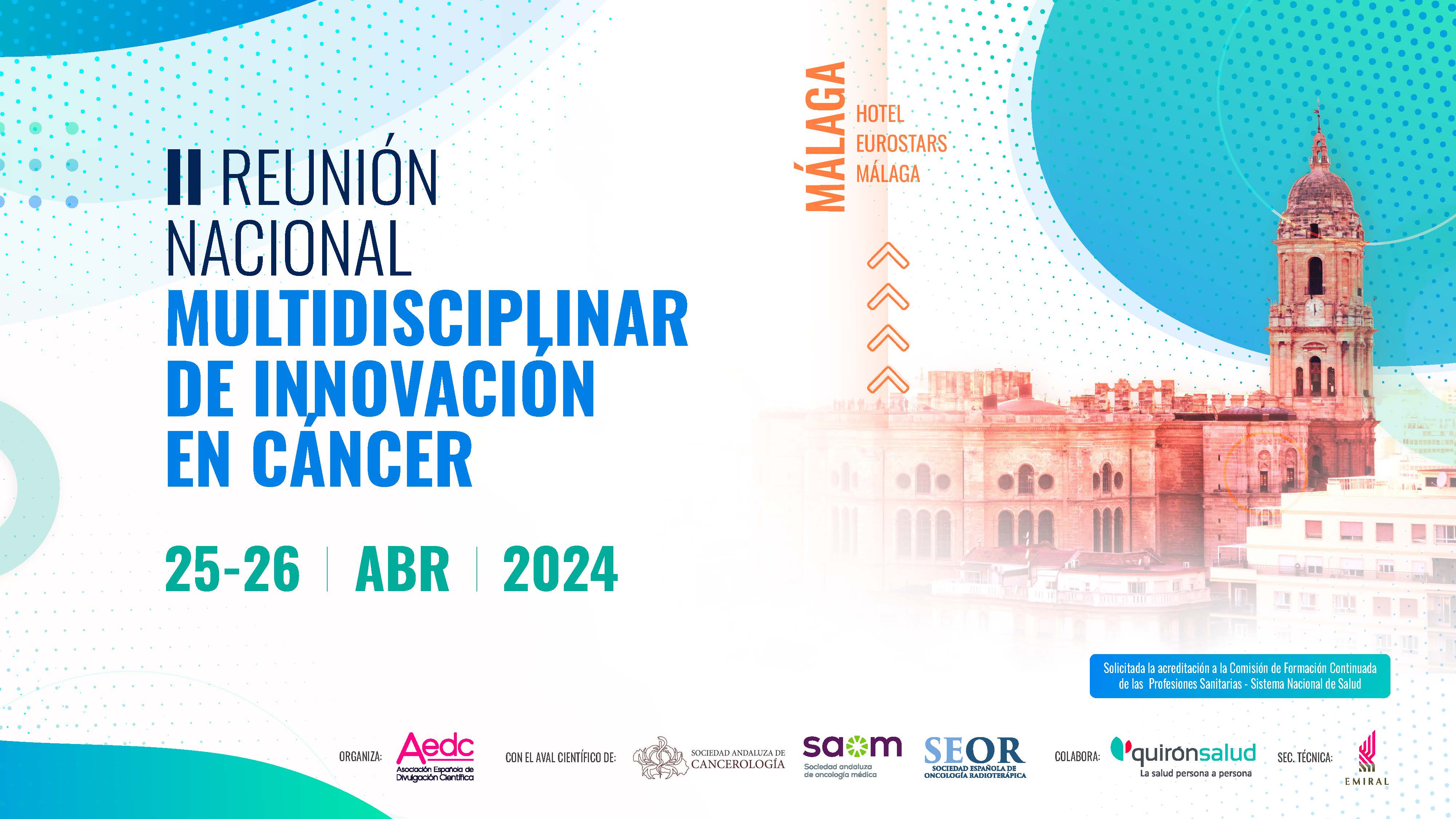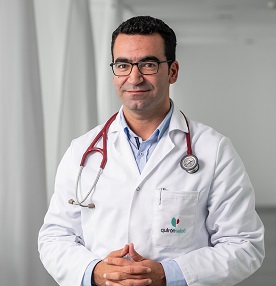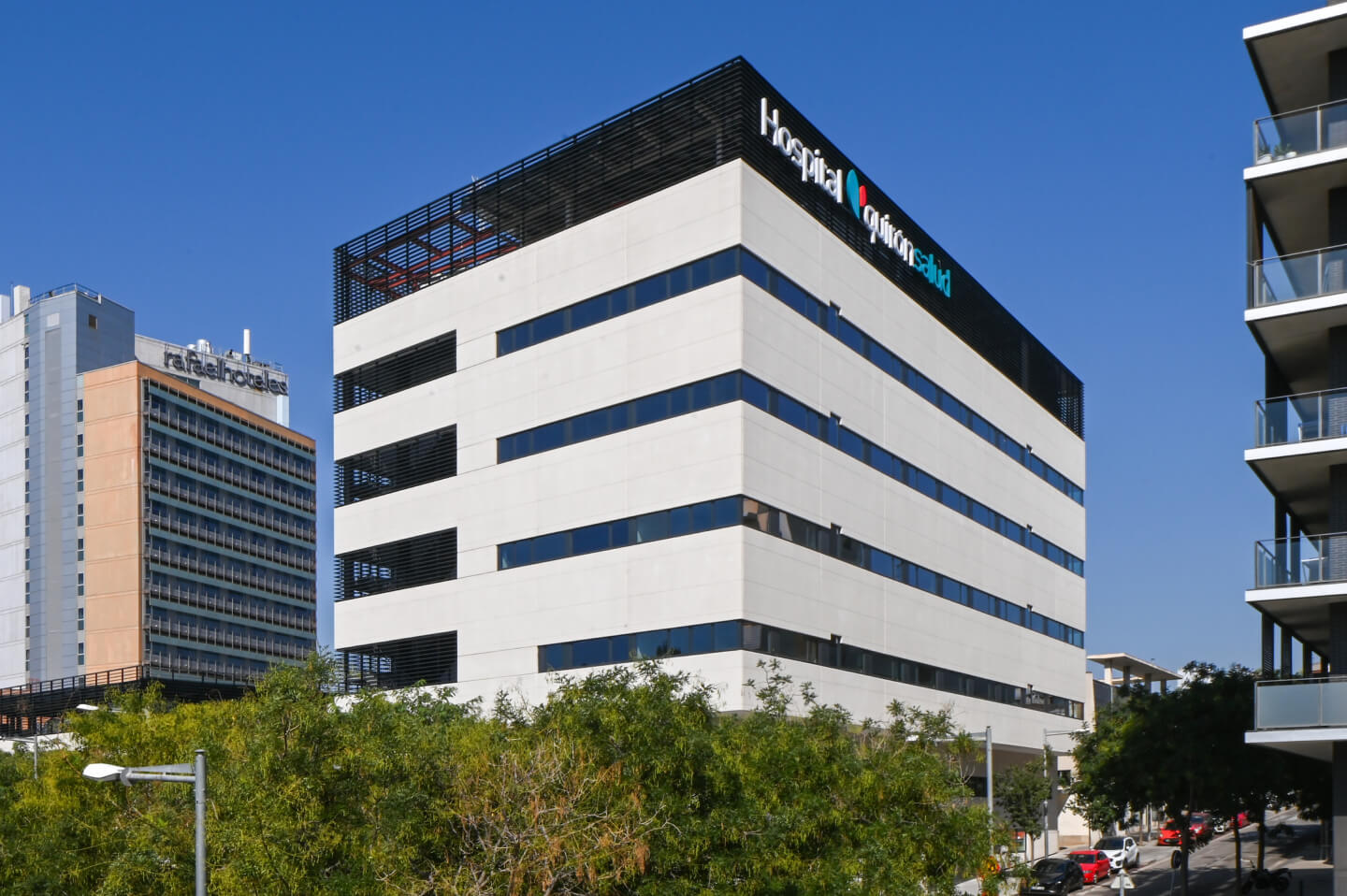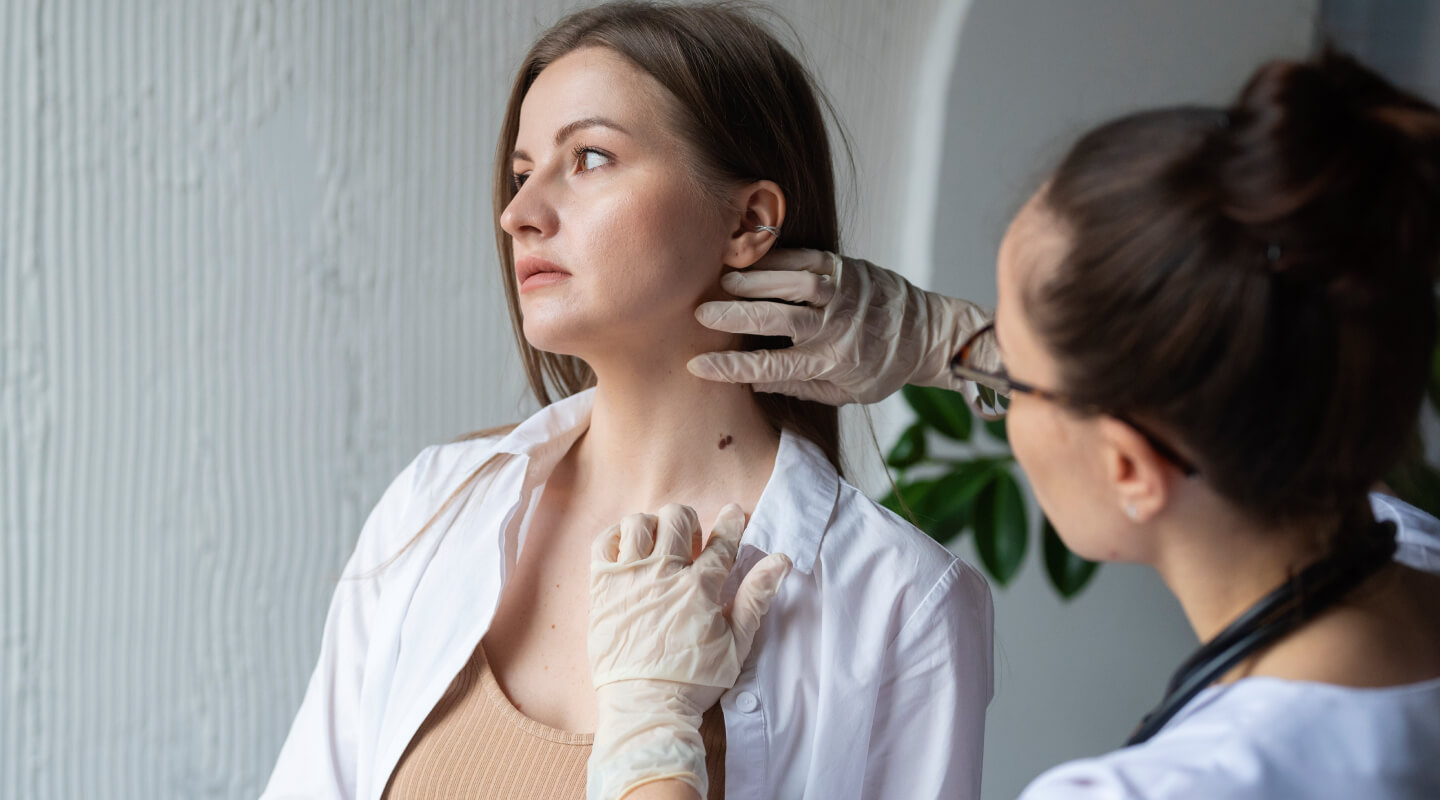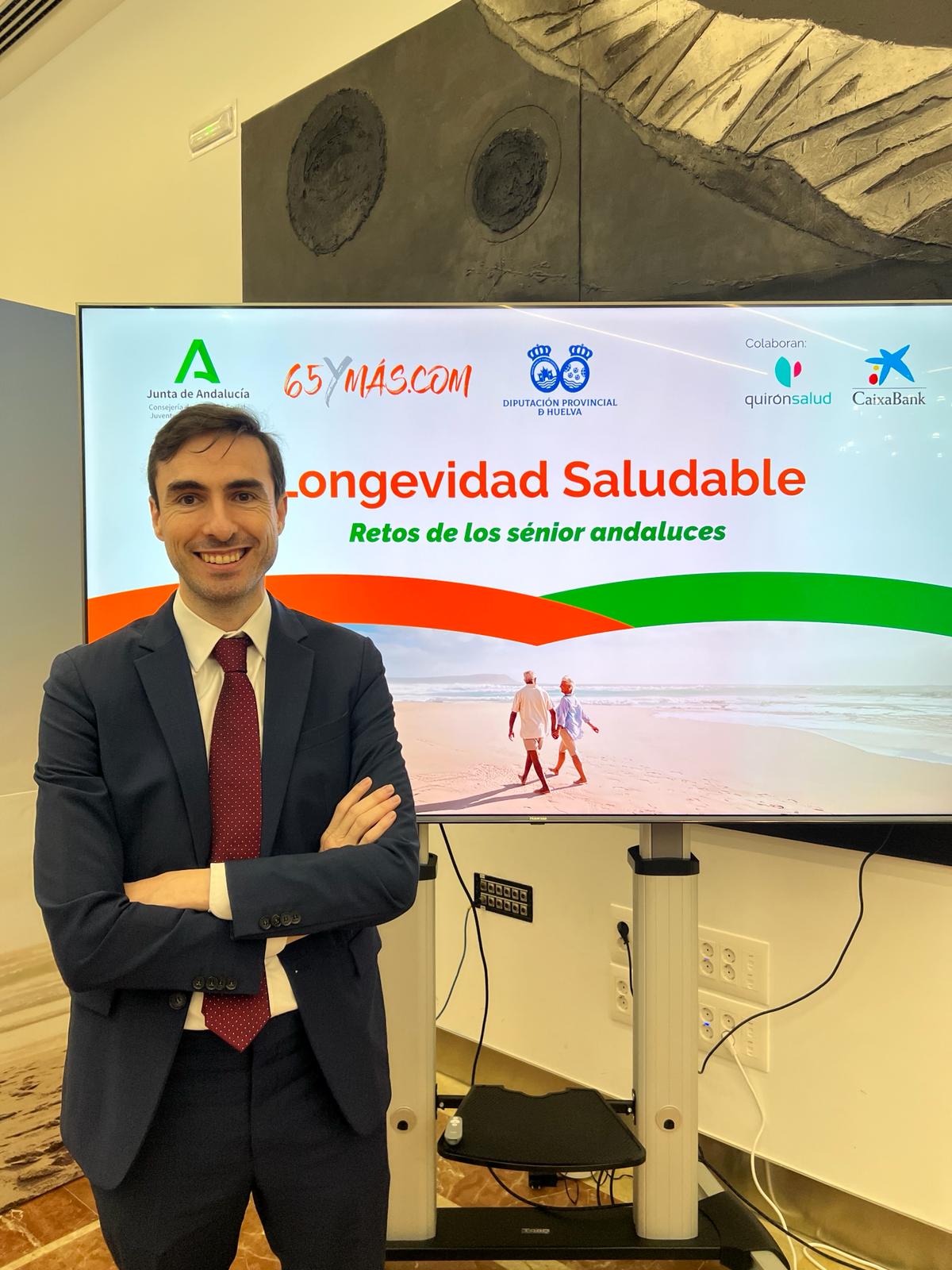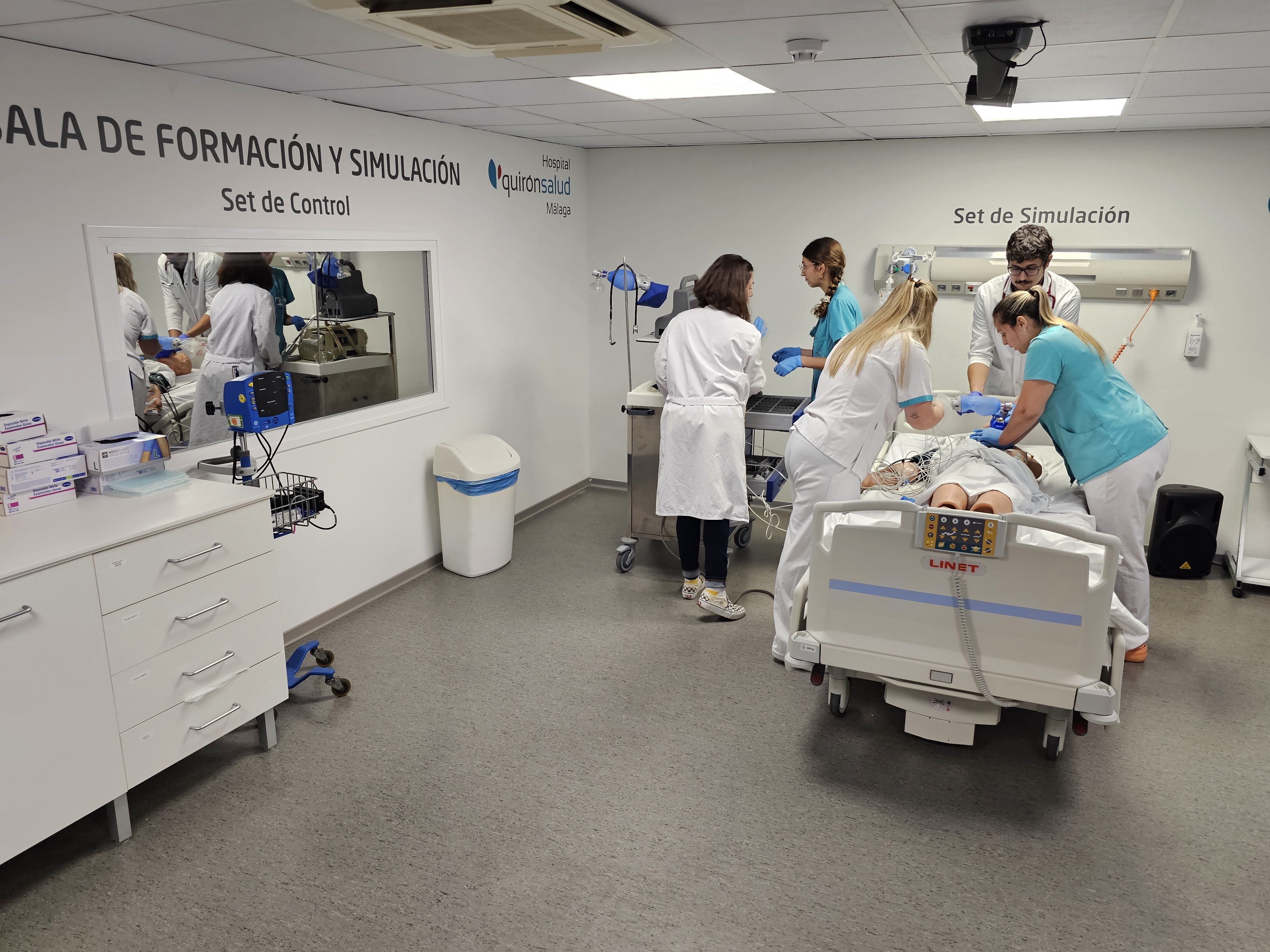“Identification of potential biomarkers for predicting the early onset of diabetic cardiomyopathy”.
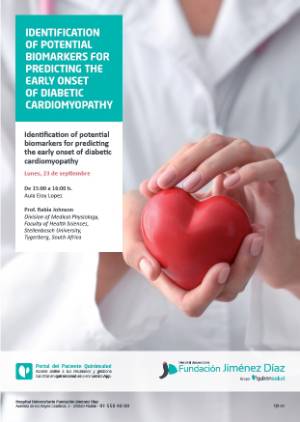
Título: "Identification of potential biomarkers for predicting the early onset of diabetic cardiomyopathy"
Type 2 diabetes (T2D) is characterized by metabolic derangements that cause a shift in substrate preference, inducing cardiac interstitial fibrosis. Interstitial fibrosis plays a key role aggravating left ventricular diastolic dysfunction (LVDD) which has previously been associated with the asymptomatic onset of heart failure. The latter is responsible for 80% of deaths among diabetic patients and has been termed diabetic cardiomyopathy (DCM). Through in silico prediction and subsequent detection in a leptin receptor deficient db/db mice model (db/db), we identified a biomarker profile that could potentially detect the early onset of DCM. Differential expression of Lysyl Oxidase Like 2 (LOXL2) and Mitochondria protein dehydrogenase (MPD), in both serum and heart tissue of 6-16-week-old db/db mice, confirmed cardiac dysfunction and correlated with a reduced LVDD as assessed by high-resolution Doppler echocardiography. Principal component analysis of the combined biomarkers, LOXL2 and MTB, further displayed a significant difference between wild type and db/db mice from as early as 9 weeks of age. Knockdown experiments, utilising siRNA of either LOXL2 or MTB, revealed a decrease in the expression of Collagen Type I Alpha1 (COL1A1), a marker that contributes to enhanced myocardial fibrosis. Additionally, receiver-operating curve (ROC) analysis of the proposed diagnostic profile showed that the combination of LOXL2 and MTB resulted in an area under the curve (AUC) of 0.813, with a cutoff point of 0.824, suggesting the favorable positive predictive power of the model and further supporting the use of LOXL2 and MTB as possible early predictive DCM biomarkers. In conclusion, we propose that the identified genes might be able to detect DCM asymptomatically and a follow up study is required using human serum with established DCM to confirm such findings.
Ponente: Prof. Rabia Johnson.
Fecha/hora: Lunes 23 de septiembre, 15:00 – 16:00h.
Lugar: Aula Eloy López de la Fundación Jiménez Díaz. Avenida Reyes Católicos 2, Madrid 28040.
Current events
Current events
- 18 de abril de 2024
Quirónsalud, Healthcare Partner del Mutua Madrid Open de tenis
Las mejores raquetas del tenis mundial se dan cita en este torneo, que se disputa en la Caja Mágica del 22 de abril al 5 de mayo.Quirónsalud - 10 de mayo de 2024
III VENOUS SUMMIT CCEV 2024 Endovascular Surgery Chapter
3ª del VENOUS SUMMIT del CCEV En esta 3ª edición, que se celebrará los próximos 10 y 11 de mayo de 2024, mantendremos el formato horario de comenzar ese viernes a media mañan...Hospital Quirónsalud MálagaAngiología y Cirugía Vascular - 25 de abril de 2024
II Reunión Nacional Multidisciplinar de Innovación en Cáncer
JUEVES 25 DE ABRIL 15.30-16.30H Entrega de documentación.16.30-16.45H Bienvenida y presentación. Dr. Jorge Contreras Martínez / Dr. Manuel Cobo Dols / Dr. Tomás Urda Valcárc...Hospital Quirónsalud MálagaOncología Médica - 17 de abril de 2024
El Hospital Universitario Rey Juan Carlos implantará el programa MAIC Continuum para mejorar la transición...
El 3-5% de los ingresos hospitalarios en España son debidos a la insuficiencia cardiaca, primera causa de hospitalización en mayores de 65 años en España Más de 20 hospitales...Hospital Universitario Rey Juan Carlos - 17 de abril de 2024
El Hospital Universitario Infanta Elena implantará el programa MAIC Continuum para mejorar la transición...
El 3-5% de los ingresos hospitalarios en España son debidos a la insuficiencia cardiaca, primera causa de hospitalización en mayores de 65 años en España Más de 20 hospitales...Hospital Universitario Infanta Elena - 17 de abril de 2024
El Hospital Universitario General de Villalba implantará el programa MAIC Continuum para mejorar la transición...
El 3-5% de los ingresos hospitalarios en España son debidos a la insuficiencia cardiaca, primera causa de hospitalización en mayores de 65 años en España Más de 20 hospitales...Hospital Universitario General de Villalba - 17 de abril de 2024
El doctor Héctor Meijide, organiza la II Reunión del grupo de asistencia compartida e interconsultas...
El encuentro médico, abordará la asistencia compartida entre cirujanos e internistas en el proceso de la cirugía abdominal mayor, de colon y hepatobiliopancreáticaHospital Quirónsalud A CoruñaMedicina Interna - 17 de abril de 2024
Un equipo del CNIC identifica dianas terapéuticas para prevenir el daño cardiaco asociado a una terapia...
La investigación está liderada por el Dr. Borja Ibáñez, director científico del Centro Nacional de Investigaciones Cardiovasculares (CNIC), cardiólogo intervencionista en la ...Hospital Universitario Fundación Jiménez Díaz - 16 de abril de 2024
Los expertos del Hospital Universitario General de Villalba recomiendan fomentar las conversaciones sobre...
El hospital ha celebrado dos jornadas de prevención del suicidio en la adolescencia dirigidas a estudiantes de Educación SecundariaHospital Universitario General de Villalba - 16 de abril de 2024
Un estudio liderado por el CSIC con participación del IIS-FJD halla una combinación de fármacos eficaz...
La investigación se ha publicado en la revista científica British Journal of PharmacologyHospital Universitario Fundación Jiménez Díaz - 19 de abril de 2024
El Hospital Quirónsalud Badalona cumple seis meses de actividad alcanzando 54.550 actos médicos
La excelencia en la experiencia del paciente es el eje central que se aplica en todo proceso y gestión del centro.Hospital Quirónsalud Badalona - 16 de abril de 2024
La Teledermatología llega al Centre Mèdic Quirónsalud Aribau para acelerar el diagnóstico dermatológico
El nuevo servicio agiliza la atención y respuesta médica, en 48 horas, posibilitando una actuación rápida sobre las lesiones que presenten indicios de malignidad.Centre Mèdic Quirónsalud Aribau - 15 de abril de 2024
El doctor Guillermo Isasti participa en la mesa redonda 'Longevidad Saludable' organizada por 65ymás
Celebrada en la Diputación Provincial de HuelvaHospital Quirónsalud Huelva - 16 de abril de 2024
La Sala de Simulación de Quirónsalud Málaga, acreditada por la Sociedad Española de Simulación Clínica...
La formación de habilidades y training por equipos es una de las estrategias más exitosas para avanzar en seguridad y experiencia de paciente, desarrollo de competencias prof...Hospital Quirónsalud Málaga - 16 de abril de 2024
Casi el 20% de los niños sufre alergia primaveral en Andalucía
Se trata de una afección que se va incrementando cada año y que es más frecuente en los más pequeños, al estar su sistema inmunológico aún en desarrolloHospital Quirónsalud CórdobaPediatría y sus Áreas Específicas




